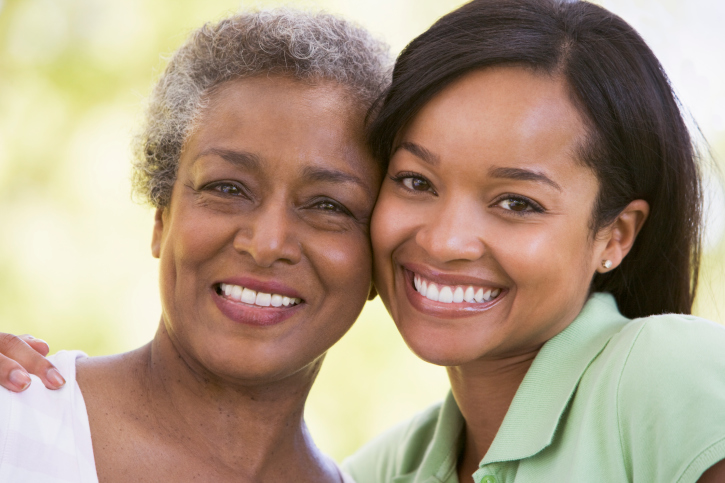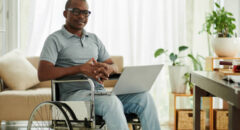
The importance of remembering to, and prioritizing caring for yourself – especially when caring for others - cannot be overstated. You must make your own well-being a high priority. Even though caring for yourself may seem like one more thing on an already overcrowded to-do list, it may become the single most important thing on that list.
How To Practice Self-Care
Care for yourself and ask others for help when necessary. It has been observed that our generation cares for elderly parents differently than previous generations. We seek help from others and share our feelings, issues, and concerns. Previous generations silently soldiered on. We talk about personal matters that would have embarrassed our parents, and we are more likely to explore counseling or confide in friends. Our generation has matured with a different mind-set. Many of us believe that the ability to ask for help is not a sign of weakness, but a sign of self confidence and therefore strength.
Monitor stress levels. Specifically regarding your stress levels, you may not be able to control life, but you can control how you react to it. Train yourself to recognize thoughts that will lead to stress. For example, any sentence that begins “I should…” is a sign of internal conflict. Do your best to retrain yourself and avoid those statements. Changing your reactions can do a lot to reduce your levels of anxiety. The first step is to listen to your body and recognize the common symptoms of stress:
- Feeling scared, sad, or moody
- Crying more than is normal for you
- Having low energy
- Having issues with your immune system
- Feeling like you don’t have any time for yourself anymore
- Changes in sleeping patterns (insomnia or sleeping too much)
- Changes in eating patterns (having no appetite or overeating)
- Isolating yourself from friends and family
- Losing interest in hobbies
- Feelings of anger or resentment toward the person you are caring for
All of these feelings are normal and can occur from time to time as you care for someone. The important thing to remember is to take care of yourself as well. Again, you are no good to others if you’re stressed out and ultimately become sick.
When you realize you are getting overwhelmed, these tips may help:
- Take deep breaths
- Leave the room (you can say you need to use the bathroom) and count slowly to 20
- Listen to music with gentle sounds and soft rhythms
- Take a nap (time permitting)
- Exercise regularly
- Consciously relax each tense muscle from your toes to your forehead
- When you have more time, practice some basic relaxation meditation or visualization techniques to help restore your equilibrium
Consider this analogy - when flight attendants go through the safety briefing before a plane takes off they tell you that in case of emergency, place the oxygen mask on yourself before you place it on someone else. The logic is simple—you can’t save someone else if you have passed out from oxygen deprivation. The same concept applies in caregiving.
You must make your own well-being a high priority. By taking care of yourself you are enabling yourself to take better care of your loved ones. Some people process this as being selfish. It is not. It is essential. Also by asking for help when you need it, you are doing what is healthy and better positioning yourself to be a more effective caregiver.
 After years of consulting, providing professional advice and caring for the elderly, Derrick Y. McDaniel, a recognized expert in the eldercare industry, an attorney and former NYU professor, has composed a resource tool to help everyone who cares for their aging loved ones. Eldercare, The Essential Guide to Caring for Your Loved One and Yourself is a book that answers all the tough care giving questions that most people do not know to ask. Visit MrEldercare101.com for more information.
After years of consulting, providing professional advice and caring for the elderly, Derrick Y. McDaniel, a recognized expert in the eldercare industry, an attorney and former NYU professor, has composed a resource tool to help everyone who cares for their aging loved ones. Eldercare, The Essential Guide to Caring for Your Loved One and Yourself is a book that answers all the tough care giving questions that most people do not know to ask. Visit MrEldercare101.com for more information.









